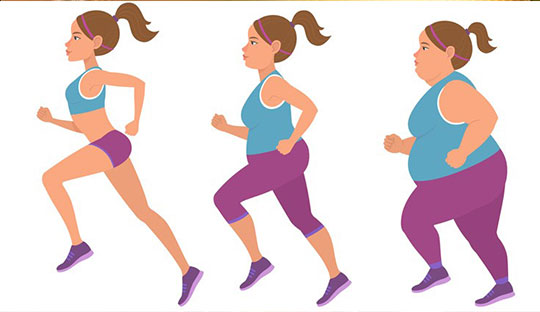
5. Physical activity- a risk or a protective factor for diet gaps?

For many of us following a dietary weight loss program can be difficult. There are many factors which can stimulate diet lapses, which in turn can lead to weight loss failure. While some studies shows that exercise leads to overeating by increasing appetite and/or a person's justification for eating, other studies shows exercise regulates hunger and may help reduce overeating.
Recently, there was a study on this aspect from the researchers of the Center for Weight, Eating and Lifestyle Science (WELL Center) in the College of Arts and Sciences at Drexel University which stated exercise is a protective factor rather than a risk factor for diet lapses. The study was conducted in 130 participants in a weight loss program, who were following a reduced-calorie diet, engaged in exercise in their real-world and using novel methods, like ecological momentary assessments, or brief surveys, that were delivered to participants' smartphones multiple times a day to measure overeating and hip-worn fitness trackers to measure exercise.
It was observed that when participants did not engage in exercise, the risk of overeating in the following hours was 12 percent whereas when participants engaged in 60 minutes of exercise, the risk of overeating was cut by more than half, to five percent. For every additional 10 minutes of exercise, a participant is engaged in; the likelihood of overeating was decreased by one percent in the few hours following exercise.
The results from the study hints that the effect of exercise on eating behaviour may depend on the intensity of the exercise, with light (versus moderate-to-vigorous) physical activity showing the strongest protective effects against overeating, though more research is needed to support this finding said Crochiere one of the researchers. Interestingly, it was suggested from the study that exercise may aid in adhering to a reduced-calorie diet, perhaps through improved regulation of appetite or eating behaviour.
Also, these findings can help researchers to better understand whether participants who are seeking weight loss are at risk of overeating and can contribute to the development of treatments that prevent overeating and facilitate weight loss. The study was published January 2020 in Health Psychology.
For enquiries info@jothydev.net.
Please visit: jothydev.net | research.jothydev.com | diabscreenkerala.net | jothydev.com/newsletter
